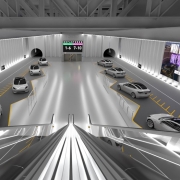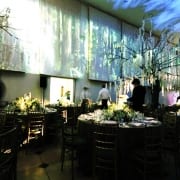HOSPITALITY DRAWS CREATIVE PEOPLE
If you’re a creative person, you might think that a career in the hospitality industry would put an end to your inspiration and ideas. It might seem like an industry of staying within the rules and limitations. Maybe you would need to save your creativity for your hobbies. But the truth is, creative minds are an asset to the hospitality industry. People with outside-the-box thinking and unique ideas can thrive in this industry and help their employers improve how business is done.
There are many ways creativity can come into play in the hospitality sector. Here are some ways it could help you shine:
Positive attributes of creative people
Creative people can have certain traits that make them especially valuable in hospitality careers. These creative characteristics include:
- Problem-solving skills
- Personal responsibility of tasks
- Openness to ideas and information
- Ability to cope with flexible and changing rosters
- Willingness to change and adapt
- Openness to new duties, roles or methods
- Facing challenges and uncertainty with optimism
- Able to question the status quo
Generally, creative people can be good at meeting the needs of a company and adjusting as those needs change. They can think and find solutions to problems as needed. These are just the kinds of people that are needed in positions devoted to satisfying customers, leading employees and keeping hospitality businesses competitive
The importance of innovation in hospitality
Over time, the hospitality industry has been putting an emphasis on innovation. Industry professionals are encouraging their staff and management to be creative with everyday practices and offerings including, for example, thinking of innovative changes that could improve the guest experience. Especially when staff or management know their roles, techniques, and best practices, they have some room to find creative ways to make improvements.
Thinking differently can be used in many areas of hospitality processes and practices. For example, creativity can help with better hiring practices. For example, different hiring practices from normal can be helpful in roles where high turnover is an issue. Examples include:
- Open interviews with many applicants in quick sessions of five to seven minutes.
- Referral programs.
- Continuous recognition of employees.
- Simplifying the application process to remove roadblocks (e.g. to reach a younger demographic, it’s important to make it possible to apply via mobile phone).
Creativity helps brands stay afloat and move forward
It’s helpful for creative people to be in workplaces that encourage innovation and ideas. Hospitality companies that are conducive to these types of people have channels of communication open for employees to share their ideas. They allow trial-and-error testing to try out new things and see how guests respond. They need to be able to bend slightly on standardization and allowing staff to create personalized, unique experiences.
Coming up with new ideas can help brands stay competitive during normal times but especially during challenging times like the recent pandemic. Innovative thinkers are needed to help adapt as times change.
Creativity is valuable at all levels
Creative traits are important for staff in all positions of the hospitality hierarchy. Staff that carry out the day-to-day processes and interact directly with customers need to adapt to changes and challenges in ways that fit the situation. Also, they are the ones who can institute ideas and practices on the ground.
Nonetheless, creativity is equally important at higher levels of hospitality management. When businesses want to expand, change or move into new markets, they need a sense of vision and new ideas to get them where they want to go. If you’re a creative person, then you can find new angles and new ways to solve new problems.
Sometimes, brands need to adapt to new customers and markets, so they need to think differently from what they have done before.
Catering to creatives
Putting a focus on creativity does not need to stop at the brand and its processes. Thinking outside-the-box can also extend to customers. A relatively new trend in the industry is private member club start-ups that are catering directly to “creatives,” such as writers, musicians, artists, actors and entrepreneurs. These clubs provide a space for like-minded individuals to come together. They offer specific amenities targeted to this group, including meeting spaces, workspace, private offices, libraries and event venues. Some offer sub-communities and programming for members and guests to interact with.
While this example focuses on a creative clientele, it’s not too difficult to imagine how a creative staff would connect with the target audience and develop the right experience. Sharing the artsy mindset could help staff develop the programming, events and spaces for this clientele.
Combine best practices with innovation
Creative thinking is valuable in all aspects of the hospitality industry. It is helpful within everyday processes and in broader plans and strategies. Creative traits are useful at all staff levels and in different workplaces. Hospitality brands can be rewarded when they allow their staff to share ideas and adapt to situations, and they benefit from thinking innovatively on a broader scale. For these reasons, creative people can shine within these roles.
It’s a good idea to put these skills and personality traits on a hospitality resume and for hiring managers to look for them. However, thinking outside the box is most effective when you understand the box. In other words, a strong education in hospitality can give you an understanding of the industry and best practices. Then, you will know when to stick to tradition and when to get creative.
Source: Adapted for the club industry from an article appearing in:













